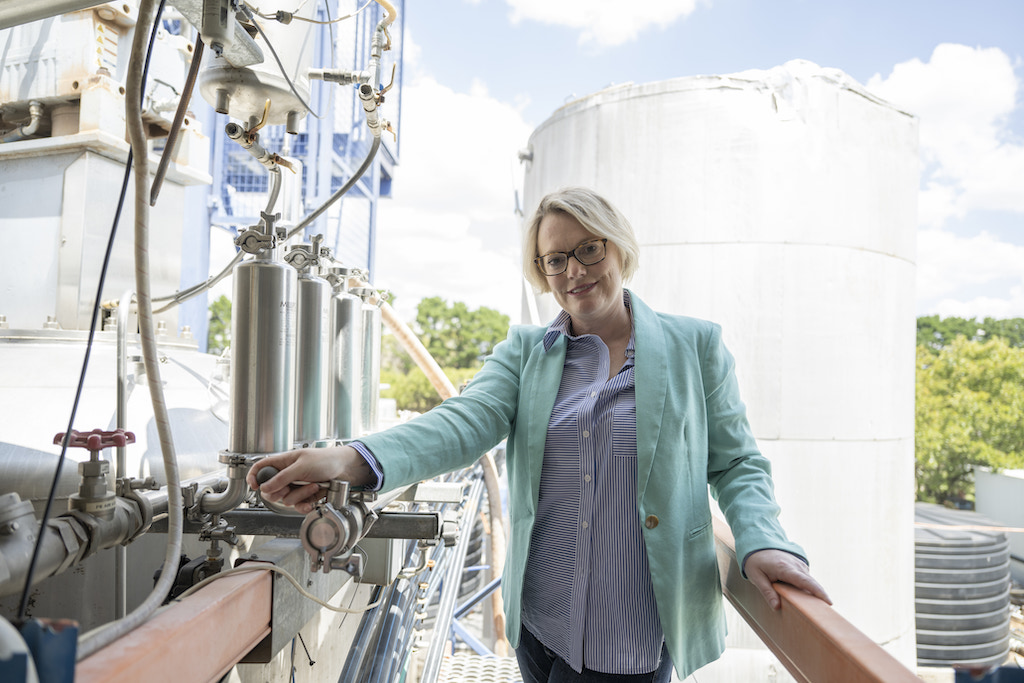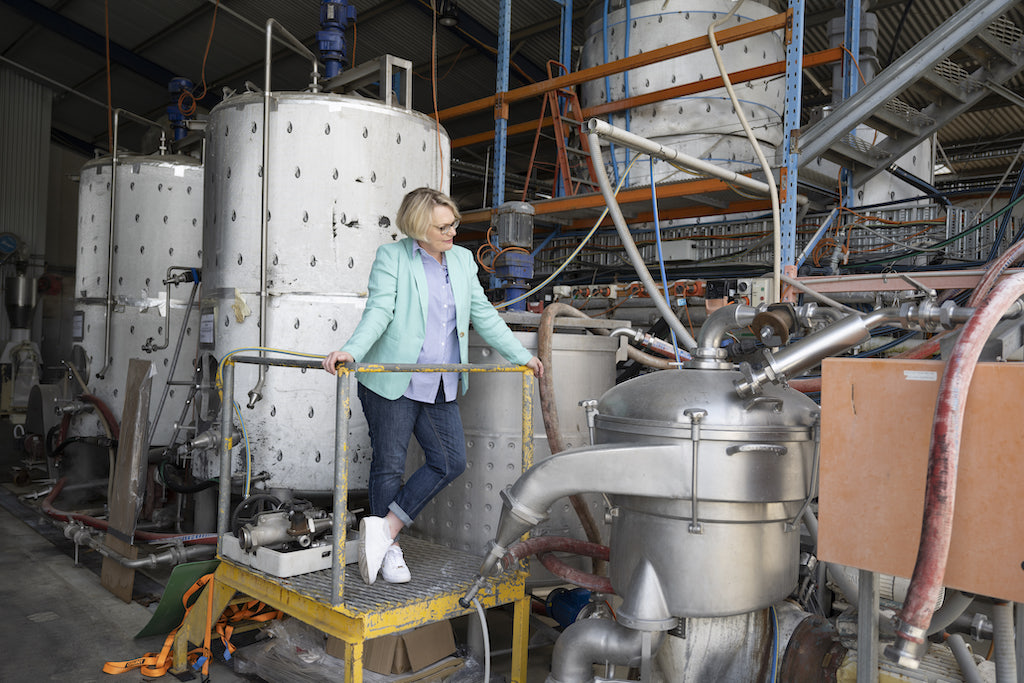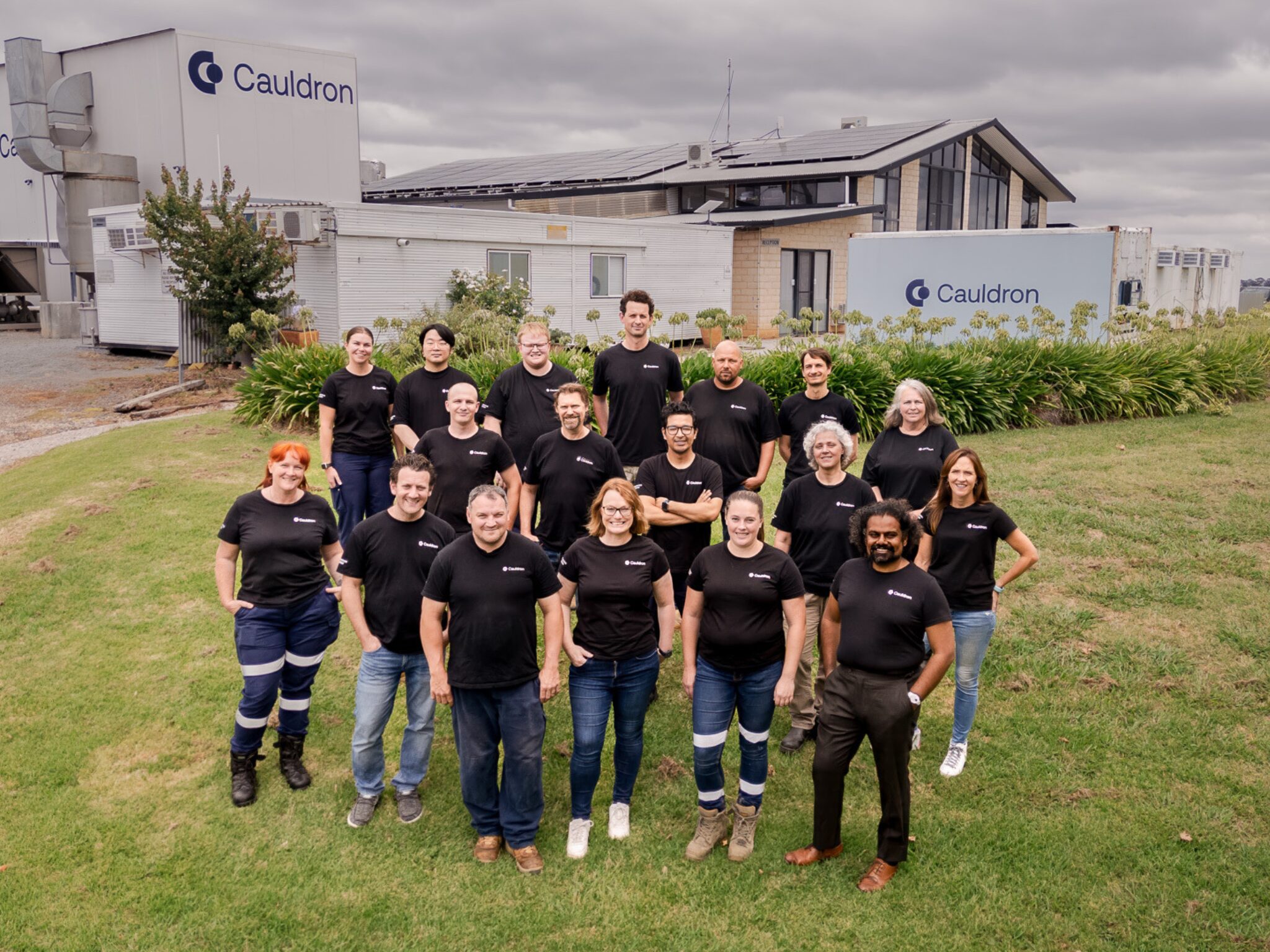Cauldron Ferm Raises $6.25M in Series A to Fund Hyper-Fermentation Facility for High-Value Ingredients
5 Mins Read
Australian hyper-fermentation company Cauldron Ferm has secured AU$9.5M ($6.25M) in Series A funding to build a large-scale facility to manufacture high-value ingredients through precision fermentation.
A year after closing a large AU$10.5M ($7M) seed financing round, Cauldron Ferm has raised a further AU$9.5M ($6.25M) in its Series A round, which was led by Horizons Ventures, with participation from existing investor Main Sequence, alongside SOSV and In-Q-Tel (IQT).
The startup’s manufacturing platform enables partners to produce high-value ingredients using precision fermentation in a continuous, more efficient process. It is the only business approved to manufacture precision-fermented protein ingredients at scale in Australia. The latest investment will enable the company to support “faster-than-expected customer growth, build robust proof cases around the application of its hyper-fermentation technology, and finalise partners and plans for a 500,000-litre facility”.
“Precision fermentation is an amazing technology, because it enables bio-based production of a wide range of products with diverse applications,” said Horizons Ventures’ Chis Liu. “To date, the technology has been hamstrung by its costs compared to conventional production methods, but Cauldron’s unique solution significantly improves the competitiveness of precision fermentation both in capital and operating expenditure.”
Continuous fermentation produces more proteins for cheaper

Founded in 2022, Cauldron’s hyper-fermentation tech is built on 35 years of R&D from Agritechnology, where co-founder and CEO Michele Stansfield worked for over a decade. In fact, the reason why its seed round was larger than the Series A is because it was used to buy out Agritechnology’s precision fermentation IP last year. The company’s tech involves a novel bioreactor design and proprietary growth medium formulation, which improve the economics of large-scale fermentation production by five times compared to the current industry standard.
The key is that this technology can run continuous fermentation, compared to the short-term batch production that’s widely in use. The company has successfully run a 10,000-litre production system for protein ingredients continuously for eight months without any contamination or any “genetic drift” of microbes, which are two of the biggest challenges of running long-term fermentation. This was facilitated by approval from Australia’s Office of the Gene Technology Regulatory.
This hyper-fermentation process allows the startup to outproduce batch systems that are five times larger with its smaller, cheaper bioreactors. It is currently operating out of a facility with a 25,000-litre fermentation capacity in Orange, New South Wales, but the latest capital injection will accelerate its plans for a 500,000-litre site. The longer-term plan is to build a large network of precision fermentation facilities globally for bio-based product manufacturing.
“Cauldron has proven its precision fermentation at an industrially relevant scale, unlocking a significant decrease – between 30% and 50% – in the cost of goods for our customers vs traditional batch fermentation,” said Stansfield. “From biofuels and agriculture to cosmetics and chemicals, the opportunities are immense, and with the support of our incredible investors, we’re poised to capitalise on them.”
Olivia Jones, director at IQT, said: “Food insecurity and competition among countries to control resources is a real risk. The technology Cauldron has created in enabling alternative ways of producing food, proteins, and materials on an industrial scale will be game-changing.”
Advancing Australia’s nascent precision fermentation sector

Cauldron is already working with global commercial partners through its current plant in Orange, but plans to raise more funds as part of a Series B round by the end of the year to fund the new facility. It will help the company offer dairy ingredients to food manufacturers that could eventually satisfy the growing demand for dairy proteins globally at a competitive price, according to Australian alternative protein think tank Food Frontier.
“This development is not a new project or R&D experiment, it is a pathway to market success for Australia’s precision fermentation food companies who have needed access to larger facilities,” explained Food Frontier CEO Simon Eassom. “This not only opens the door for Australian food ingredient manufacturers, but also opens the door for Australia to exploit brand new industry growth and become a world leader in the precision fermentation field.”
Po Bronson, general partner at SOSV and managing director of IndieBio, called Stansfield and Cauldron’s long-run fermentation prowess “unparalleled”. She added: “The benefits of the technology – the ability to continuously produce, up to 50% lower net unit costs, and 20% more output with 45% less capex – dismantle a major obstacle for the industry and position the company as a critical manufacturing partner for companies building a more sustainable future.”
There are only a handful of precision fermentation companies in Australia and New Zealand, including Eden Brew, Daisy Lab and All G Foods. So while it’s still a young industry, the Commonwealth Scientific and Industrial Research Organisation – Australia’s science agency – forecasts that it will reach a value of $1.45B by the end of the decade.
Food Frontier believes Cauldron’s new infrastructure will only go on to help the country’s sector realise this potential, noting that if Australia has enough capability and capacity, international manufacturers will have the option of sourcing ingredients from down under.
“Food ingredients made from precision fermentation might be new now, but they will become the norm around the world for producing foods using dairy proteins and fats without the animal to improve performance and flavour in milk derivatives, cheeses, and products like plant-based meats,” said Eassom. “Cauldron Ferm has enabled the path forward for producing ingredients made from precision fermentation to be cheaper to use in food production than their animal-based counterparts and meet future protein demand in a much more environmentally sustainable way.”



